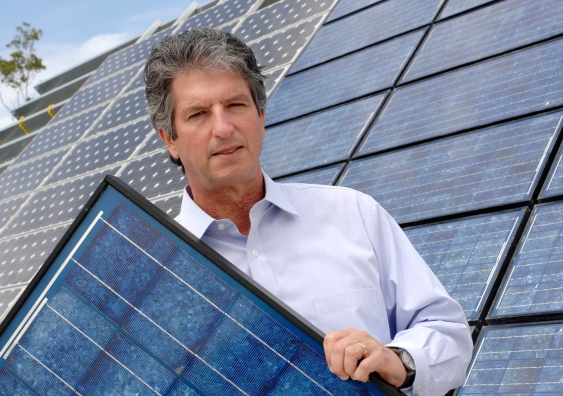UNSW researchers make list of most influential scientists
Six researchers from UNSW Sydney and its affiliates have been included in the 2017 list of Most Highly Cited Researchers.
Six researchers from UNSW Sydney and its affiliates have been included in the 2017 list of Most Highly Cited Researchers.

Six researchers from UNSW Sydney and its affiliates have been included in the 2017 list of Most Highly Cited Researchers.
The prestigious list is compiled annually by Clarivate Analytics and celebrates contemporary research achievement in 21 fields of the sciences and social sciences, based on the number of citations for papers published between 2005 and 2015.
This year’s list features more than 3,000 researchers who have a “consistent production” of highly cited papers – defined as those that rank in the top 1% by citations for their field by publication year.
UNSW’s listed researchers are: Associate Professor William Cornwell, UNSW Science; Scientia Professor Martin Green and Associate Professor Thomas Wiedmann, UNSW Engineering; Professor Mattheos Santamouris, UNSW Built Environment; and Professor Bruce Neal and Professor Mark Woodward, The George Institute for Global Health.
The 2016 list included three UNSW researchers.
UNSW Deputy Vice-Chancellor (Research) Professor Nicholas Fisk congratulated these top UNSW researchers on making the prestigious list.
“The fact that the number of UNSW High Cites listed has doubled is testimony to the burgeoning strength of our research, as well as to the new strategic affiliation with the George Institute,” Professor Fisk said.
“Peer recognition in the form of citations at the highest level makes achieving Highly Cited Research status a pinnacle reputational measure for these individual researchers.”
Researchers from the US continue to dominate the Clarivate list: almost half of all the entries are affiliated with US organisations, including research institutes and universities.
But Chinese institutions are rapidly gaining ground, with their number rising 34% compared with last year’s list.
See the full list here.
Associate Professor William Cornwell, from the School of Biological, Earth, and Environmental Sciences, researches the intersection of plant eco-physiology, community ecology and ecosystem ecology. He is particularly interested in using basic ecological tools, especially functional traits, to understand the effects of climate change on terrestrial biodiversity. His current major research interests are climate change effects on terrestrial vegetation, plant functional variation effects on the carbon cycle, assembly of plant communities, especially considering human impacts via climate change, and tempo and mode of evolution of plant traits.

Scientia Professor Martin Green.
Scientia Professor Martin Green, from the School of Photovoltaic and Renewable Energy Engineering, is a solar pioneer and world leader in the field of photovoltaics. He is director of the Australian Centre for Advanced Photovoltaics (ACAP), and has continued to break records in silicon solar cell efficiency for more than 30 years.
Associate Professor Thomas Wiedmann, from the School of Civil and Environmental Engineering, has long-standing expertise in integrated sustainability assessment and environmental footprint analysis. His main research question is how to achieve human wellbeing without increasing environmental impacts. He develops and applies environmental input-output analysis as part of a holistic concept to life cycle assessment, industrial ecology and sustainable consumption and production research.
Professor Mattheos Santamouris is UNSW’s first Professor of High Performance Architecture and has a research focus on sustainability, technology and the invention of low energy materials. He has spent the past 15 years mapping urban heat islands in 200 cities, and has been focusing recently on the urban heat island effect in Western Sydney.
Professor Bruce Neal, a Senior Director at The George Institute for Global Health, has a long-standing research interest in cardiovascular disease and diabetes, including the environmental determinants of high blood pressure and poor cardiovascular health. His research focuses on clinical research in cardiovascular disease and diabetes, and research related to food policy and the dietary determinants of ill health. His food policy research program focuses on dietary salt reduction.
Professor Mark Woodward, from the Professorial Advisory Unit of The George Institute for Global Health, is a world recognised expert in meta-analysis and has been involved in high-profile studies including the Blood Pressure Lowering Treatment Trialists Collaboration and the ADVANCE clinical trial in diabetes. He is also a world expert in cardiovascular disease (CVD) risk scoring. Other interests include big data and women’s CVD, where Professor Woodward has demonstrated that diabetes and smoking confer greater additional CVD risk in women than in men.